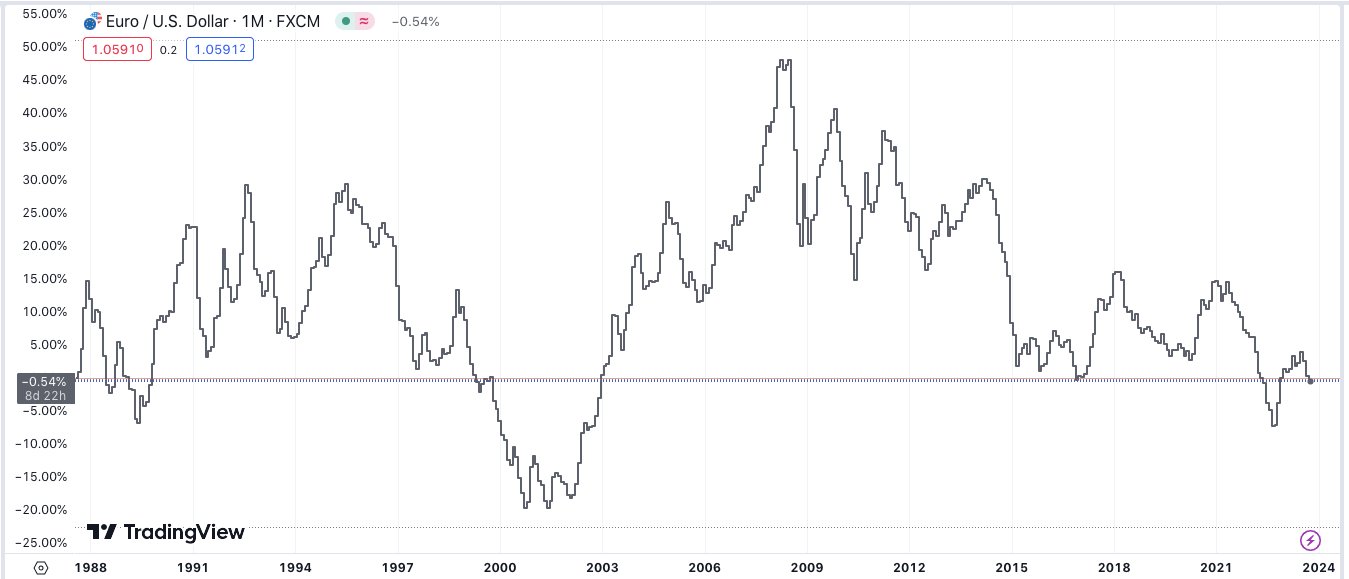Cold Wars and the Decline of Globalization
Globalization's dual symbols are in decay: Hong Kong and the Euro. A new narrative is emerging: Japan and the rise of productivity.
Nvidia shares took a nearly 9% nosedive this week. Behind this significant drop was the U.S. government's decision to tighten restrictions on exporting advanced AI chips to China. This not only affected Nvidia but also led to a ripple effect on several tech-centric ETFs with significant exposure to the chipmaker. Such events are indicative of a larger shift: a burgeoning cold war that stands in stark contrast to the principles of globalization and free trade.
As the world grapples with competing for processing power, energy, and control over supply chains, we're observing increased volatility, especially in technology and commodities. While this volatility presents opportunities, we must also brace for prolonged turbulence in this emerging multipolar world.
Globalization's Dual Symbols in Decline
Hong Kong's Hang Seng Index: Once seen as the investment gateway to China's rise, the Hang Seng represented the zenith of globalization. However, its bull run, which peaked in 2008, signifies a pivotal shift in global economic dynamics.
The Euro: Another emblem of globalization, the Euro, showcased the challenges of a shared monetary system combined with varied fiscal strategies. Negative real interest rates have disincentivized innovation and productivity. Now, Europe's green energy pursuits, at the expense of national security, are coming due.
Rethinking Productivity and Economic Dominance
Conventional wisdom suggests searching for the next 'economic miracle' - the successor to China's explosive growth. Many point to India. Yet, an analysis of GDP metrics offers a different narrative. With the US and China leading the charts, which nation is poised to join the coveted $20 trillion club next?
Our bet is on Japan. Factors such as global supply chain shifts, heightened automation, evolving defense stances, and Japan's strategic positioning against China's dominance make it a compelling contender. If this thesis holds, we might witness Japan's economy catapulting from $4.4 trillion to $20 trillion within a decade.
In the wake of the pandemic, it appears the Nikkei is embarking on a structural bull market. Its low point in 2009 and subsequent resurgence post-pandemic underscore Japan's potential as a pivotal player in this new multipolar era.
Guillermo Valencia A
October 23th, 2023






